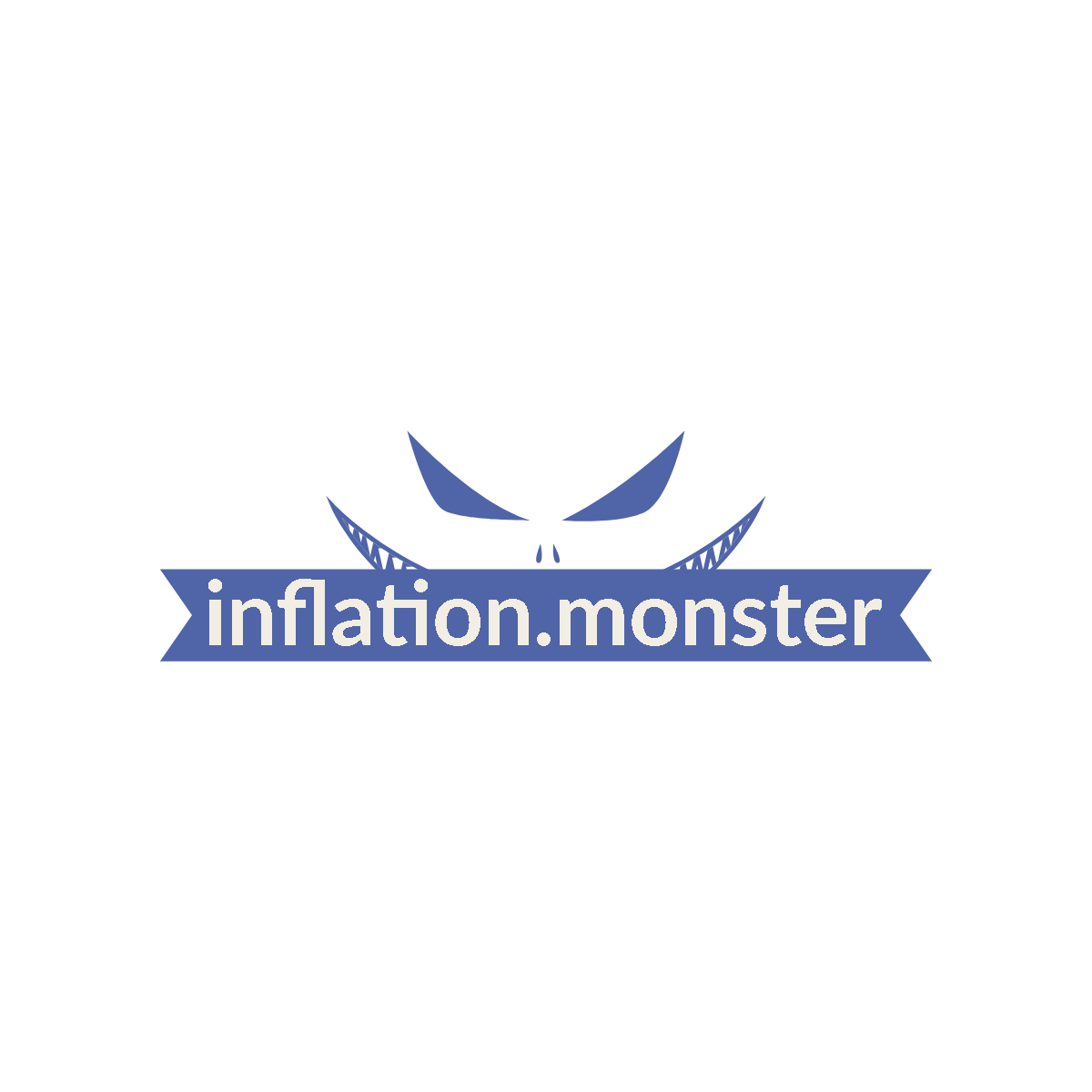Inflation, a term that often haunts the world of finance, is a force that can shake the stability of economies and leave investors uncertain about the future. At Inflation.Monster, we strive to navigate the murky waters of this beast and shed light on its impact on various aspects of the financial landscape. Today, we turn our attention to the stock markets, where the ripples of inflation can send waves of uncertainty or open doors of opportunity. Join us as we explore how inflation shapes the world of stocks, revealing both the challenges and potential rewards that lie within. Keep your eyes peeled and your pockets ready – it’s time to dive into the impact of inflation on stock markets.

Definition of Inflation
Overview
Inflation is a fundamental concept in economics that refers to the general increase in prices of goods and services in an economy over a period of time. It is often measured by the consumer price index (CPI), which tracks changes in the average price level of a basket of goods and services consumed by households. Inflation can erode the purchasing power of money, as the same amount of money can buy fewer goods and services.
Causes of inflation
Inflation can be caused by various factors, and economists have identified several key drivers that contribute to its occurrence. One major cause of inflation is excess demand for goods and services relative to their supply. When there is more money chasing the same amount of goods, prices tend to rise. Additionally, inflation can be triggered by an increase in the cost of production, such as higher wages or raw material costs. Changes in government policies, such as monetary and fiscal measures, can also impact inflation. Finally, external factors such as changes in global oil prices or exchange rates can influence the overall price level in an economy.
Types of inflation
Inflation can manifest itself in different forms, depending on the specific circumstances and causes. One common distinction is between demand-pull inflation and cost-push inflation. Demand-pull inflation occurs when there is excessive aggregate demand in the economy, causing prices to rise. This can happen when consumers have more disposable income or when government spending increases. On the other hand, cost-push inflation is caused by rising production costs, such as increased wages or resource prices, which are passed on to consumers in the form of higher prices. Other types of inflation include built-in inflation (resulting from expectations of future price increases) and imported inflation (due to higher prices of imported goods and services).
Relationship Between Inflation and Stock Markets
Inverse Relationship
Historically, there has been an inverse relationship between inflation and stock markets. Inflationary periods often coincide with periods of economic growth, as rising prices can be indicative of increased consumer demand and business activity. However, inflation can also exert pressure on stock markets and have negative effects on investor sentiment. This inverse relationship suggests that when inflation is high, stock markets may experience declines or increased volatility.
Stock Market Reaction to Inflation
Stock markets can react differently to inflation, depending on various factors. In general, high and unexpected inflation can lead to negative reactions in stock markets. Investors may worry about the erosion of purchasing power and the impact of inflation on company profitability. Anticipation of higher interest rates to combat inflation can also negatively affect stock markets. Conversely, moderate and expected inflation may not have a significant impact on stock market returns, as investors can adjust their expectations and investment strategies accordingly.

Factors Affecting Stock Market Response to Inflation
Rate of Inflation
The rate of inflation plays a crucial role in determining the stock market’s response. Abrupt and high levels of inflation can create uncertainty and volatility in the markets, leading to sell-offs and decreased stock valuations. On the other hand, low and stable inflation rates may provide a more favorable environment for stock market activity, as investors can make more informed decisions based on predictable price movements.
Duration of Inflation
The duration of inflation also influences its impact on stock markets. Short-lived or transitory inflation may have minimal effects on stock market performance, as investors may view it as temporary and adjust their investment strategies accordingly. However, prolonged inflationary periods can create uncertainty and negatively affect investor sentiment, leading to decreased stock market returns.
Expectations and Anticipation
Investor expectations and anticipation of future inflation can significantly impact stock market behavior. If investors anticipate higher inflation in the future, they may adjust their investment strategies accordingly to hedge against potential losses. Expectations can influence stock valuations, with investors favoring companies that are better positioned to mitigate the effects of inflation through pricing power or cost controls.
Central Bank Policies
Central bank policies, particularly monetary policy, play a crucial role in influencing stock market responses to inflation. Central banks have the ability to control interest rates and money supply, which can have a direct impact on inflation rates. If a central bank responds to inflationary pressures by tightening monetary policy (raising interest rates, reducing liquidity), it can have a dampening effect on stock market returns. Conversely, accommodative monetary policies (lower interest rates, increased liquidity) may support stock market performance during inflationary periods.
Effects of Inflation on Stock Market Returns
Real Returns
Inflation can significantly impact the real returns of stock market investments. Real returns refer to the returns adjusted for inflation, which provide a more accurate representation of the purchasing power gained or lost. High inflation erodes the purchasing power of investment returns, reducing the real value of stock market investments. Investors must consider both nominal returns (returns before adjusting for inflation) and real returns when evaluating the performance of their stock market portfolios.
Nominal Returns
Nominal returns reflect the actual returns earned from stock market investments without adjusting for inflation. During periods of high inflation, nominal returns may appear high, giving the illusion of strong performance. However, the purchasing power of these returns may be diminished due to the corresponding increase in prices. Nominal returns may not accurately reflect the actual value gained or lost by investors. It is essential to consider both nominal and real returns to assess the true impact of inflation on stock market investments.
Market Valuation
Inflation can also influence stock market valuations. As inflation increases, investors may demand higher returns to compensate for the eroding value of money. This increased risk perception can lead to a decrease in stock market valuations, as investors discount future cash flows at higher discount rates. Additionally, rising costs and inflationary pressures can negatively impact corporate profitability, which can further affect stock market valuations.

Inflation and Investor Behavior
Risk Appetite
Inflation can impact investor risk appetite and investment preferences. High inflation erodes the value of cash and fixed-income investments, encouraging investors to seek assets that can offer protection against inflation. This can lead to a shift in investor preferences towards stocks, real estate, and commodities. Conversely, low inflation or deflationary pressures may increase risk aversion, leading investors to allocate their investments towards safer assets such as bonds or cash.
Asset Allocation
Inflation can also influence asset allocation decisions. Investors may adjust their portfolio allocations to include assets that can act as inflation hedges, such as stocks in companies with pricing power, real estate, and commodities. These assets have the potential to increase in value or generate income that can keep pace with or outpace inflation. Adjusting asset allocations to account for inflation can help investors protect their portfolios against the erosive effects of rising prices.
Market Volatility
Inflation can contribute to increased market volatility, as uncertainty about future price movements and investor sentiment can create fluctuations in stock market prices. During periods of high inflation, market volatility may increase, presenting both risks and opportunities for investors. It is important for investors to be aware of and prepared for potential increases in market volatility when formulating their investment strategies.
Impact of Inflation on Different Types of Stocks
Growth Stocks
Inflation can have varying effects on different types of stocks. Growth stocks, which are typically companies with high earnings growth potential, may be adversely affected by inflation. High inflation can lead to increasing costs of production, including labor and raw materials, which can eat into profit margins. Additionally, the increased discount rates applied to future earnings can result in lower valuations for growth stocks.
Value Stocks
In contrast to growth stocks, value stocks, which are generally underpriced relative to their fundamental value, may fare better in inflationary environments. These stocks tend to have stable cash flows and may possess pricing power to pass on increased costs to consumers. Value stocks can also benefit from investors flocking to more defensive sectors or seeking assets that offer protection against rising prices.
Dividend Stocks
Dividend stocks, which provide regular income through dividend payments, can be impacted by inflation in several ways. While rising inflation can erode the purchasing power of dividend income, companies that consistently raise their dividends may be able to offset the effects of inflation. Dividend growth can provide a hedge against inflation, as companies with strong cash flows and profitability can increase dividend payments to keep pace with rising prices.
Cyclical Stocks
Cyclical stocks, which are tied to the performance of the overall economy, can be greatly influenced by inflation. During inflationary periods, central banks may implement policies such as raising interest rates to combat rising prices. These actions can lead to decreased consumer spending and reduced demand for cyclical goods and services. As a result, the stock prices of cyclical companies may experience downturns during inflationary periods.
Inflation-Proof Investment Strategies
Diversification
Diversification is a key strategy for mitigating the impact of inflation on investment portfolios. By spreading investments across different asset classes, sectors, and geographic regions, investors can reduce the risk of being overly exposed to the negative effects of inflation on specific investments. Diversified portfolios can include assets that have historically acted as inflation hedges, such as stocks with pricing power, real estate, and commodities.
Hedging
Investors can also use hedging strategies to protect against the erosive effects of inflation. One common hedging tool is purchasing inflation-indexed bonds, also known as Treasury Inflation-Protected Securities (TIPS). These bonds provide returns adjusted for inflation, helping investors preserve the purchasing power of their investments. Additionally, investors can use options or futures contracts to hedge against potential declines in the value of their investment portfolios due to inflation.
Inflation-Indexed Bonds
Inflation-indexed bonds, such as TIPS, are fixed-income securities that provide protection against inflation. These bonds have their principal and interest payments adjusted for changes in inflation, allowing investors to maintain the purchasing power of their investments. Inflation-indexed bonds can provide a predictable income stream and potential capital appreciation during inflationary periods, making them a suitable inflation hedge for conservative investors.
Commodities
Investing in commodities can also serve as a hedge against inflation. Commodities such as gold, silver, oil, and agricultural products tend to maintain or increase their value during inflationary periods. These assets have tangible value and can act as a store of wealth when paper currencies lose purchasing power. Investing in commodities can diversify an investment portfolio and provide a potential hedge against the erosive effects of inflation.
Examples of Historical Stock Market Reactions to Inflation
Hyperinflation in Weimar Germany
One notable example of the impact of inflation on stock markets is the hyperinflation experienced in Weimar Germany during the early 1920s. The German mark rapidly lost value, leading to skyrocketing prices for goods and services. Stock markets initially soared as investors sought to hedge against the devaluing currency. However, as hyperinflation continued, the economy collapsed, and stock markets eventually crashed, wiping out the value of investments.
Inflation in the United States during the 1970s
Another significant example is the inflationary period experienced in the United States during the 1970s. Rising oil prices and expansionary fiscal policies contributed to high levels of inflation, known as “stagflation” due to the combination of stagnant economic growth and inflation. The stock market experienced volatility during this period, with periods of gains and losses reflecting investor concerns about rising prices and economic instability.
Inflation in Japan during the Lost Decade
During the 1990s, Japan experienced a prolonged period of deflation and economic stagnation, commonly known as the “lost decade.” However, even during this deflationary period, specific sectors of the stock market, such as technology and export-oriented industries, performed well. The impact of inflation on stock markets can vary depending on the overall economic conditions and specific factors influencing market sentiment.
Future Outlook: Inflation and Stock Markets
Current Economic Conditions
The future outlook for inflation and its impact on stock markets is uncertain and subject to various economic factors. Global economic conditions, including government policies, monetary measures, and geopolitical factors, can influence inflation rates and stock market performance. Inflation is influenced by a complex interplay of factors, including supply and demand dynamics, labor markets, and consumer sentiment, making future predictions challenging.
Central Bank Policies
Central bank policies will continue to play a significant role in shaping the relationship between inflation and stock markets. The decisions made by central banks, particularly regarding interest rates and monetary stimulus programs, can impact inflation rates and investor sentiment. Future changes in central bank policies can potentially affect the stock market’s response to inflation and overall market performance.
Potential Impacts
The potential impacts of inflation on stock markets will depend on the severity and duration of inflationary periods. Higher inflation, especially if it is unexpected or accompanied by other economic challenges, can lead to increased market volatility and declines in stock market valuations. However, moderate and anticipated inflation may have a more moderate impact, providing opportunities for investors who can position themselves to take advantage of changing market dynamics.
Conclusion
Inflation is a complex economic phenomenon that can have a significant impact on stock markets. Understanding the relationship between inflation and stock markets is crucial for investors to navigate the financial landscape and make informed investment decisions. Inflation can influence stock market returns, investor behavior, and the performance of different types of stocks. By employing inflation-proof investment strategies and monitoring economic conditions, investors can strive to protect their portfolios against the erosive effects of inflation and potentially capitalize on investment opportunities.




